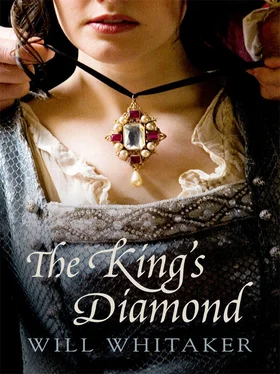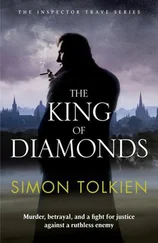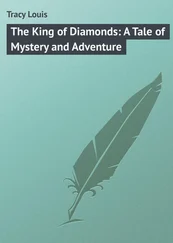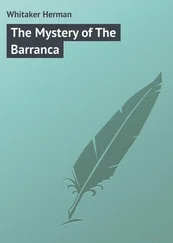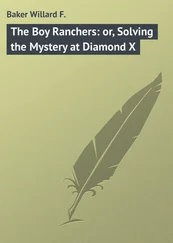That autumn, in the bazaars of Cairo, a Venetian named Marin Pompeo caught sight of a stone the like of which he had never before seen. Its owner, a nervous young Yemeni, allowed himself to be beaten down to two thousand ducats. Returning home by galley up the rainswept Adriatic, the Venetian turned the diamond in his hands. He soon learnt the knack of catching the light and making it shine. Pompeo was no stranger to diamonds. He had bought and sold them for thirty years, and he had seen them in every size and colour and form. He had handled the rare greens, the common, less prized yellows, the noble whites and blues; he had seen table cuts and pyramids, rough stones with a black flaw at their hearts, strong stones and weak. Once he had owned a diamond that shattered merely with the pressure of his fingers, a beautiful stone with a wild and reckless glint to it. This diamond, he thought, might be another one the same. Again and again he held it up gingerly, by morning light and noon, by lantern and candle. Each time it was different. He yearned to see it cut, and he swore to himself he would do it, whatever the danger. But back home again, walking the Rialto that winter with its jewellers’ shops by the dozen, he found he did not dare. When a young nobleman of Florence named Lorenzo de’ Bardi offered him two and a half thousand ducats for it he handed it over, grieving, regretful, yet relieved. The temptation was over. He, at least, would not be the one to shatter that stone.
De’ Bardi took the diamond with him back to Florence. He had just come into his inheritance. He travelled with fifty retainers, his own suite of furniture, a jester, twelve minstrels, his wife, a concubine and a dwarf. He had come to Venice for pleasure, and he had found it. But of all the beautiful things he bought in Venice’s markets, none pleased him so much as this diamond. Pompeo had shown him how to turn the stone and make it shine, and had whispered to him how much greater it could be, if he ventured to have it cut. But that risk was not for him. Why should he wish to share his diamond’s beauty with others? It pleased him to think that he alone could see inside its heart; that if anyone else happened to pick it up, the chances were that they would see nothing but a dull, grey pebble. To cut the stone would have meant answering the trust it showed him with betrayal.
Over the years, de’ Bardi lost much. His wife left him, and then his mistress. When his family became caught up in the wars of the Borgias, he lost almost everything else; but still he kept hold of his stone. Every night for forty-three years he took it out of its casket and gazed upon it. Those glimpses he allowed himself into its heart were a secret bond, a love that was greater than any he had known.
Only as he lay dying did it finally leave his hands. At his side knelt a young Englishman, a merchant in jewels.
‘Who will wear the diamond when I am dead?’ murmured the old man.
‘A king’s lady,’ answered the Englishman. ‘The most beautiful woman in the world.’
The Englishman rode away south to Rome with fierce exhilaration. He had almost paid for this stone with his life. But a diamond such as this drove away all fears.
He turned the stone in his fingers once again. Since his return to Rome, another man had given up his life for the diamond of the Old Rock. There lay the body in the corner, over by the open chest in a pool of blood, its left arm thrown out, its right clasped over the hilt of a sword. A bloody stain on the back of the green velvet doublet showed the force of the sword thrust that had passed clean through his chest.
Again he caught that deceptive gleam for an instant, and once more lost it. It was exasperating how that window into the diamond’s heart was so small, so elusive. He was weak and lightheaded with hunger. His temples throbbed, and yet he felt strangely detached. Nothing in the world save his stone really seemed to matter. At last he had time: time to turn the gem, slowly, lovingly, to see the beginnings of each change, the opening of that chink that led down into its depths, the plunge of the light, the smile of the breaking colours, and then the sudden drawing of the veil across its surface. He could imagine himself dying like this.
Dimly he perceived that he must fight the pull of the stone that whispered to him to stay, look, drink from my waters, just another hour. From outside the room there were the sounds of shots, and running feet. He knew that if he was to live he must leave this place, with the dead body lying in its blood beside the chest. Soon it would be too late. Hunger and thirst would leave him too weak to walk, and too weak to choose. But just a little longer first. Catch the gleam in the stone one more time, and again, and again.
PART 1
Topaz: a Perfect Sunshine Stone
Now my trembling mind yearns to wander,
Now my joyful feet spring with eagerness.
Sweet band of friends, farewell;
Together we set out from our far home,
But many diverse roads lead us back.
CATULLUS, POEM 46
Hammers rang on anvils, and sparks sprayed from the forges out across the stones. Men in flame-blackened aprons held lumps of glowing iron in the fires, then drew them out, refashioned them with more ringing blows, and plunged them into barrels of water with a rush of steam. I watched the new-made halberd heads, the sword blades of their various kinds, the boarding axes that are used in sea-fights. Under the arches of the Arsenal, I could see men forming the finer parts of guns, the twisted serpentines that held the match fuse, and the powder pans, bending the soft metal with their tongs, and I saw the silvery molten lead poured into moulds for bullets. The finished weapons were carried down towards the quay, to be loaded on the Spanish galleys anchored in the harbour, ready for war.
I was in my room in the Angel Inn, late on a cold January afternoon. Since morning I had sat here, unmoving, gazing out at the forges of the Arsenal, fighting a furious battle with my thoughts. ‘Go home,’ a voice seemed to say. ‘Any man of sense would say you have done enough. See what you are in the midst of. Destruction may come to Genoa any day now. Get out of Italy by the safe route, while you still can.’ Genoa was a Republic split in two, always prone to revolutions. At the moment, it sided with the Emperor. But the city’s greatest prince, Andrea Doria, was an admiral in the pay of the French and the Pope’s Holy League, and his galleys hovered out in the blue distances of the Mediterranean, waiting to inflict a stinging blow against the merchant ships of the city that was once his own.
But the road north still lay open. Just two days’ ride would take me across the border into the Duchy of Savoy, a region still untouched by the carnage of war. After that I would cross the mountains into France: calm, peaceful France. There were no armies there, roving and looting at will, no plague, no famine; there would be bandits and wolves, perhaps, but they were no more than the common dangers of European travel. A few weeks would bring me to English Calais, that comforting outpost of home planted on the edge of the Continent, and then it would be over the Channel and back to London.
I pictured myself back home on Broken Wharf by the bank of the Thames, climbing the creaking old stairs to the counting house and stepping inside. Here my mother, Miriam Dansey, known to all London as the Widow of Thames Street, directed her many ingenious business endeavours. I imagined laying before her my haul, the emeralds and sapphires, the great ruby, the amethysts and all the rest. I imagined her with her trading partner, William Marshe, the two of them drawing in their breaths and raising their eyebrows in wonder. Yes, I would have a triumph, of a kind. But I would know in my own heart that I had failed. I would have to take my gems to be cut and set by one of the London goldsmiths. I knew these men, and I knew that my stones, that had the capacity to be so extraordinary, would come out looking like all the other trinkets fashioned on Goldsmiths’ Row. I might make a profit on my venture, yes, but it would be small, and I would have lost the glory I longed for, that would come only if I could astonish and dazzle a king.
Читать дальше
